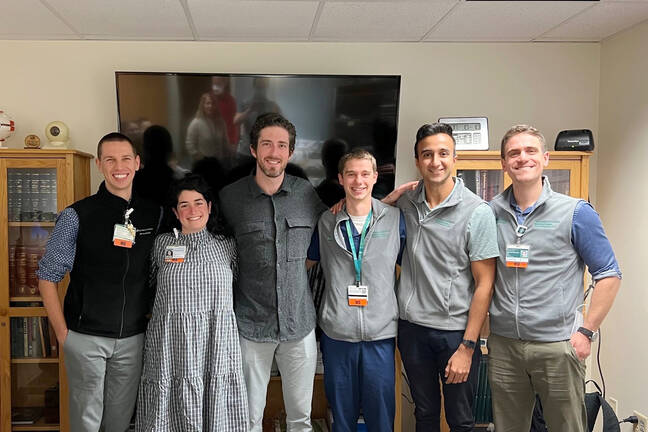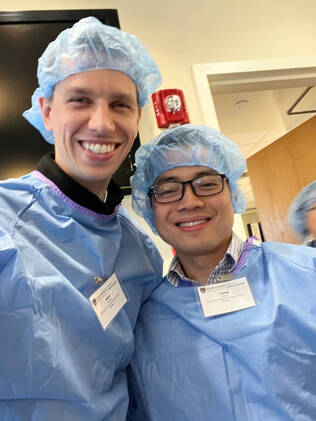The American Academy of Ophthalmology Basic and Clinical Sciences Course (BCSC) texts serve as the foundational clinical curriculum for the residency. Additional content includes topics in socioeconomics, interpersonal communication, professionalism, ethics, safety and quality improvement, medicolegal issues, wellness, systems-based practice, information resources, research methodology, billing and coding, advocacy, international ophthalmology, employment contracting and private practice, among others.
Material is reviewed in a variety of formats, including case conferences, lectures, small group discussions, online modules, video reviews, wet labs and simulations. Not all material is presented by the ophthalmology faculty; several visiting speakers, both from within the Dartmouth community and from other institutions, present throughout the year. Moreover, residents themselves will be frequent presenters at conferences.
Morning Conference
This is the core resident teaching conference, scheduled for most weekday mornings. The full didactic curriculum is presented over 18 months; the core content will be reviewed twice throughout the PGY-2, PGY-3, and PGY-4 years. All faculty and some visiting experts share in presenting the curriculum at morning conference, depending on topic. Residents are occasionally the lead presenters.
Practice-Based Learning and Quality Improvement Conference (M&M)
This meets in the mornings twice a month and is attended by both residents and faculty members. This is primarily a case presentation conference, featuring unexpected outcomes, problematic care and system errors, as well as a forum to discuss process improvement methodologies and to work on quality improvement projects.
Grand Rounds
This conference is held once a month, with participation of the regional ophthalmology/optometry community. Faculty, residents, and occasional visiting speakers present. These are typically longer format presentations, enlivened with questions and group discussion.
Journal Club
This is designed as a more social, less formal meeting, held every few months over supper in faculty homes or at local restaurants. Residents, faculty, and clinic staff all attend! Residents will work with faculty before the meeting to select relevant and interesting journal articles to present followed by group discussion.
Lancaster Course
In June of PGY-2 or July of PGY-3, residents will virtually attend the Lancaster Course hosted by Mass Eye and Ear, HMS. The course presents a formal review of optics, anatomy, and ophthalmic pathology.
Massachusetts Eye & Ear Cataract Course
In the spring of PGY-3, residents will attend this weekend course at Massachusetts Eye and Ear Infirmary, joining other residents from New England in a proctored wet-lab and simulation experience designed to advance their cataract surgical skills.
Quality Improvement
All residents receive formal “Yellowbelt” training in Lean Six Sigma process improvement methodologies. Ophthalmology residents are provided time and mentorship to assist them in completing and implementing at least 1 Quality Improvement project designed to improve clinical care.

